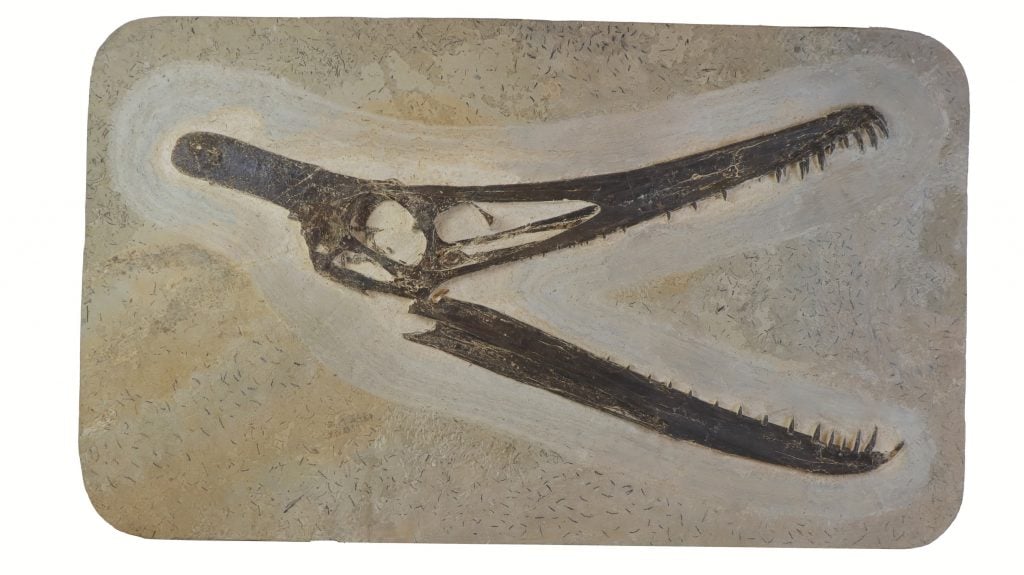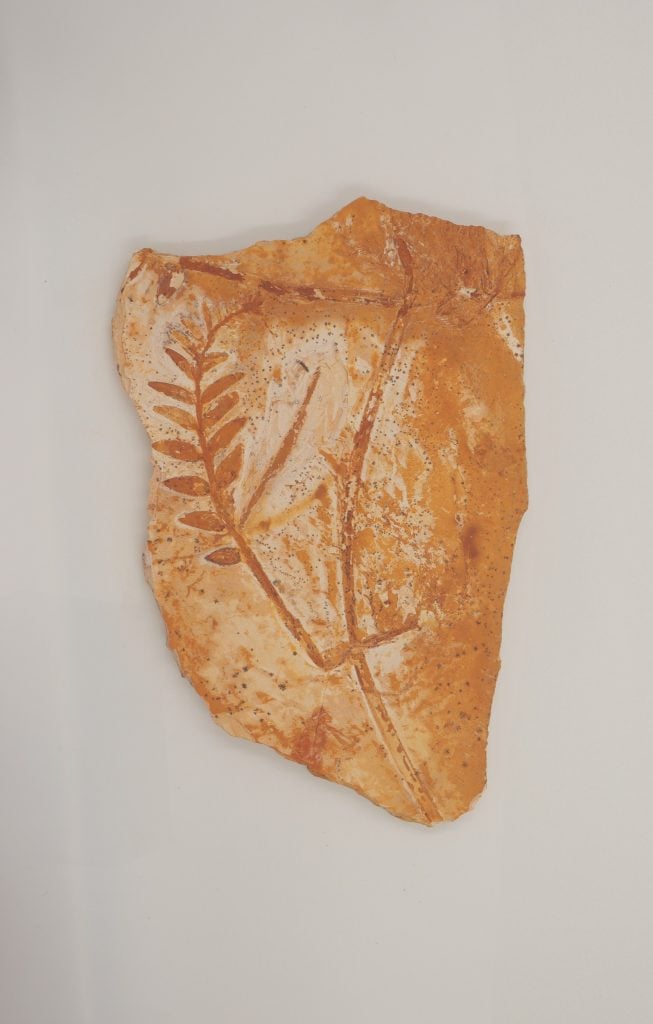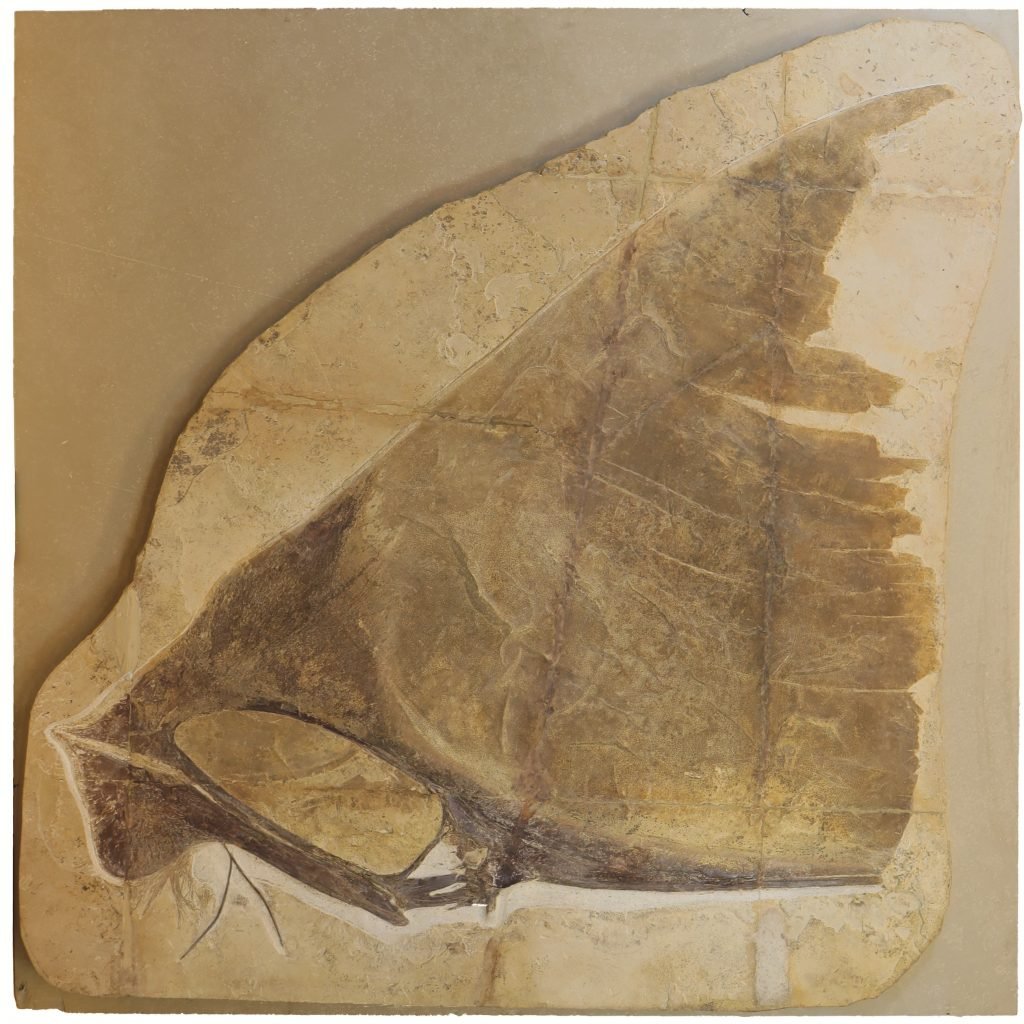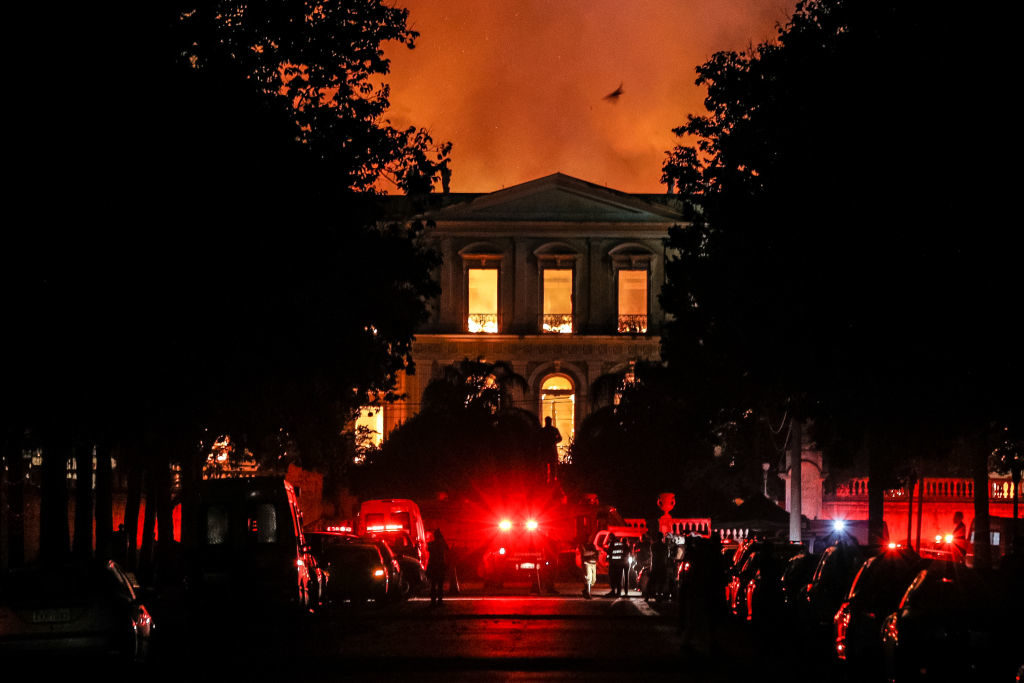Museums & Institutions
After a Devastating Fire, Brazil’s Oldest Museum Calls for Donations—and Gets a Big One
A major fossil collector hopes to set an example with a large donation.

A major fossil collector hopes to set an example with a large donation.

Brian Boucher

Call it the museum version of the Bat Signal.
After a 2018 fire destroyed some 85 percent of the renowned collection of the National Museum of Brazil in Rio de Janeiro, the museum has joined with a major fossil collector, a Rio-based nonprofit and a Swiss company to put out a call to collectors, science enthusiasts, and the cultural community to make donations and long-term loans to begin rebuilding its collection. The 200-year-old institution, Brazil’s oldest, is affiliated with UFRJ, the Universidade Federal de Rio de Janiero.
Fossil collector Burkhard Pohl, president of the Swiss company, Interprospekt Group, hopes to set an example with a gift of 1,104 fossils, among them species of pterosaurs and dinosaur fossils that were discovered in Brazil, as well as turtles, insects, crocodylomorphs, and plant specimens.

A fossilized plant specimen donated to the National Museum of Brazil. Photo: Handerson Oliveira. Courtesy Museu Nacional/UFRJ.
“I am happy to donate this collection to the Museu Nacional/UFRJ, continuing my family’s legacy of preserving and sharing cultural treasures,” said Pohl. “As a passionate advocate for natural sciences, I’ve spent decades assembling this collection and supporting research worldwide. I look forward to seeing how this collaboration enriches the museum’s offerings and inspires future generations. I hope others will join this important, collective effort to restore Brazil’s natural history collection.”
The Pohl-Stroeher family has collected for over a century in areas from fossils to Modern art. Pohl himself founded two facilities donated to natural history, the Wyoming Dinosaur Center in the U.S. and the Sino-German Paleontological Museum in Liaoning, China.

One of the fossils donated to the National Museum of Brazil. Photo: Handerson Oliveira. Courtesy Museu Nacional/UFRJ.
Pohl’s donation includes some especially significant finds. There are two fossils, likely raptors, that have never been described in scientific literature, as well as two previously unstudied pterosaur skulls and the Tetrapodophis, described as possibly the earliest snake fossil.
Also involved in the effort to rebuild the museum’s collection is Rio’s Instituto Inclusartiz, helmed by Frances Reynolds, who founded the organization in 1997. Instituto Inclusartiz describes its mission as promoting social integration, culture, education, and sustainability through art. (Reynolds is also a member of the boards of institutions including New York’s Museum of Modern Art, Tate Modern in London, and the Museu de Arte de São Paulo.)
“With the Museu Nacional/UFRJ, academics, students, and visionary companies, we’re reconstructing more than a building—we’re recreating our country’s living memory,” said Reynolds. “Reconstructing the museum’s history is an act of responsibility for all of us. Our desire is to motivate everyone with the same passion that moves us. We welcome collectors, science enthusiasts, and anyone holding records, photographs, videos, souvenirs, or collections associated with the National Museum’s collections to join us in this endeavor.”
The museum has released a short video about the new initiative.
Founded in 1818 as the Royal Museum when Brazil was ruled by Portugal, the museum had a collection of some 20 million artifacts, making it the largest national history museum in Latin America. It was home to Egyptian and Greco-Roman artifacts, as well as “Luzia,” a 12,000 year-old skeleton that was the oldest in the Americas. The institution also housed important dinosaurs fossils and a meteorite found in 1784.
At the time of the fire, Brazil’s President Michel Temer called the destruction an “incalculable loss for Brazil.” Luiz Duarte, a vice-president of the museum, told TV Globo that the fire was “an unbearable catastrophe. It is 200 years of this country’s heritage. It is 200 years of memory. It is 200 years of science. It is 200 years of culture, of education.”

A fire burns at the National Museum of Brazil, Rio de Janeiro, 2018. Photo by Buda Mendes/Getty Images.
Ironically, ahead of the blaze, the museum had signed a deal with the government’s development bank for new funding, part of which was to go to a fire prevention project.
“The date 2 September 2018 remains a poignant reminder of our duty to protect our national heritage,” said Alexander W. A. Kellner, director of Museu Nacional/UFRJ. “Through partnerships like the Pohl family’s generous donation of 1,104 fossils, we’re not just rebuilding the Museu Nacional/UFRJ but redefining its future.”
The museum is slated to reopen in 2026.